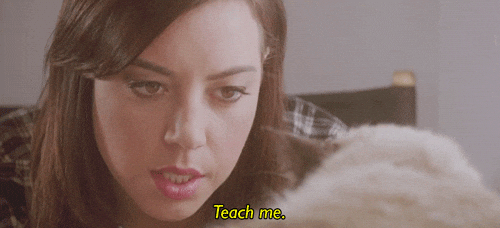How to identify jealousy & how to deal with it

When comparing monogamy and polyamory, the two may seem very different. With polyamory you have more than one partner, you don't ride the relationship escalator, and more communication is expected between all people involved. But despite their obvious differences, the emotions you experience and the skills necessary to make each type of relationship work are very similar. The emotion that causes the biggest issue in either relationship type is jealousy and the lack of skills we possess to handle the green monster.
Despite how most of the world was raised, jealousy is merely an emotion. It isn't a personality trait that you should let run rampant, and it isn't a personality flaw that you should just accept. It is an emotion that you can and should learn to control. Knowing the different types of jealousy and how to deal with each one can help strengthen your relationship, whether you're monogamous or polyamorous, and help you become a better person overall.

Here are some common causes of jealousy.
1. Unmet needs
Not having your needs met is one of the most common reasons for jealousy in a polyamorous relationship. If my partner would not go to a certain restaurant with me but took his new girlfriend to that very same restaurant on a date, I would be (understandably!) upset. This may seem like a silly reason to get upset, but little things add up.
If he were to take her to a restaurant that I want to go to, but refused to take me- or buy her flowers, but never buys me any, and does that thing with his tongue on her clit, but won't do it for me, I would feel unimportant in his life. While these are more wants than they are needs, feeling important in your partner’s life is a need no matter your relationship style.

2. Lack of communication
Continuing with my previous example, if one of my partners made me feel unimportant, but I did not bring it to his attention, it would continue to build up. Communication of needs, feelings, wants, and desire is important in any relationship!
If you're to keep your feelings and unmet needs to yourself, jealousy can breed, fester, and eventually boil over, causing other issues in the relationship. When you have negative emotions in a relationship, it is never a good idea to let them boil unchecked.
3. Society
I can't scroll through my personal facebook without seeing something about "only a real girlfriend/boyfriend will get jealousy over XYZ." Most of these things shared on social media are to push someone’s view of what a relationship should look like. Just because someone is checking out my man does not mean that I have the right to go through his phone. Society plays a large part in what is okay and what isn’t okay, and for some reason, we have put an emphasis on making jealousy okay.
The type of media you surround yourself with, the type of people you hang out with, and the type of material you choose to consume help to shape your views on certain issues. Reading an article in Cosmo about how you should check your significant other's phone or why it isn’t okay for someone to check them out can breed jealousy.

Now- let's focus on how to actually deal with that jealousy.
Step 1: Realize it’s JUST an emotion
Google defines jealous as “feeling or showing envy of someone or their achievements and advantages.” This definition shows an emotional reaction to an unmet need. This definition hints at a need to be recognized, more successful, or wanting something that someone else has. This definition of jealousy insinuates that your jealousy is something personal you should work on to better yourself.
Google also defines jealousy as “feeling or showing suspicion of someone's unfaithfulness in a relationship.” This definition hints at a feeling, again, instead of defining it as a personality trait. This definition can be handled through communication. If you suspect that your partner is cheating on you, you should bring it up to them instead of acting rashly.
The final definition that Google gives us for the word jealous, is "fiercely protective or vigilant of one's rights or possessions.” Surprisingly, this defines a personality trait. Claiming this type of jealousy as a personality trait implies that you own something. If you believe that you own your partner, you have an unhealthy view that needs to be worked on.

Step 2: Ask why
Your first step in handling jealousy should be to define what type of jealousy you're feeling. Do you feel envy? Or do you suspect your partner is cheating on you? Knowing which type of jealousy you're feeling will help you understand how to process it. Which is the next step, asking yourself why you're feeling jealous.
Step 3: Process it
Once you have defined the type of jealousy you're feeling, you should then process and deal with it. If you're feeling envious of your partner, you should take some time to reflect on what needs are not being met and talk to someone about how you can better yourself and get what it is that you envy in others. Envy is the lack of something, and only you can better yourself and your life.
If you feel suspicious of your partner(s), you should take some time to reflect on why you're feeling this way and talk to the partner you're suspicious of. Often, suspicion is caused because you feel like your needs aren't being met. But if you do find evidence that your partner is doing something unethical, you should be ready for a long, uncomfortable conversation, and prepare ways to keep the conversation from getting too heated.
Remember:
Jealousy in any type of relationship is unhealthy if left unchecked. There are many different things that cause jealousy, but thankfully, just as many ways to handle it. Whether you have unmet needs, aren't talking things out, or you're surrounding yourself with negative media, you can handle this emotion properly and come out of it a better person!
